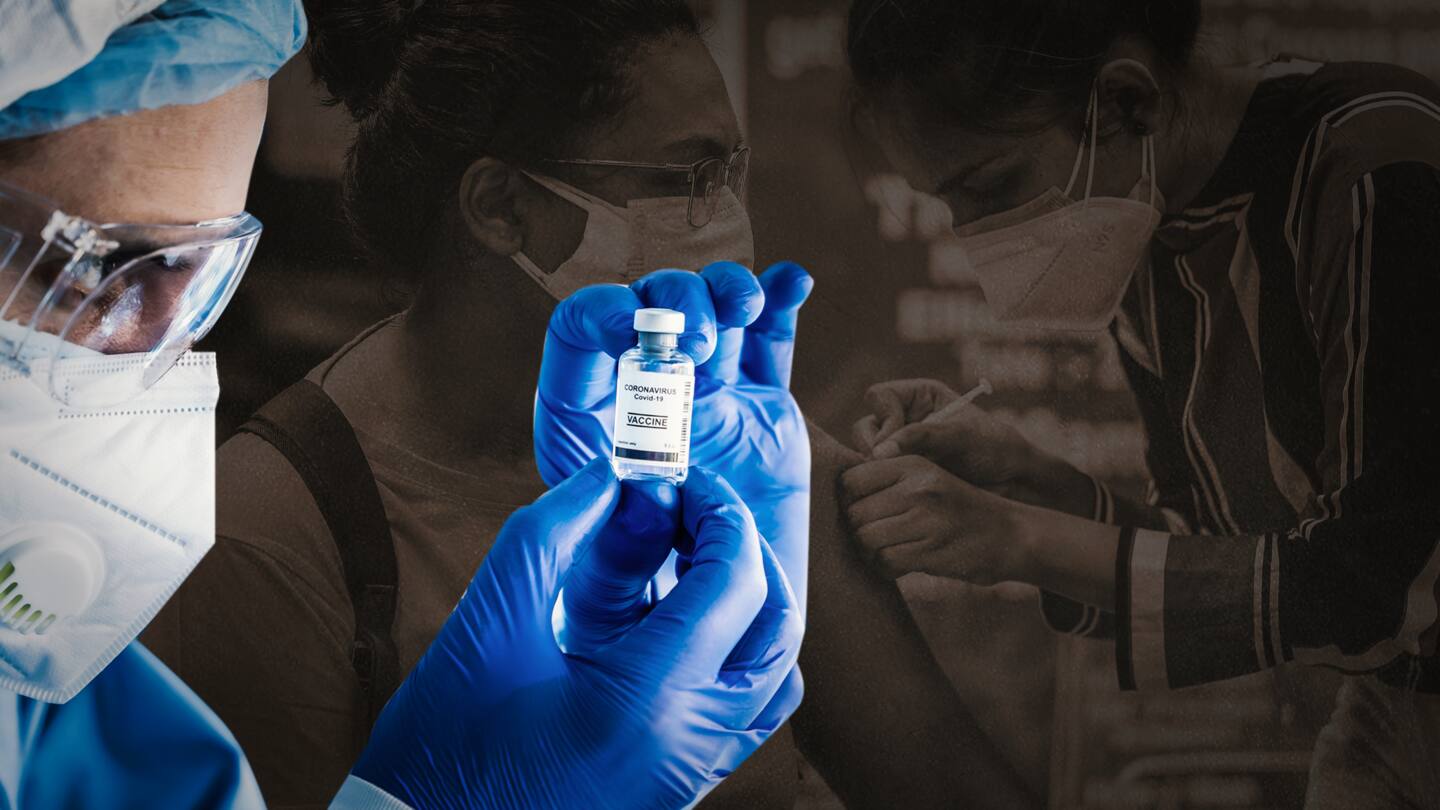
Can fully vaccinated people develop long COVID?
What's the story
Coronavirus vaccines are safe and effective. They have been proven to considerably cut down risks of infection, serious illness, and death from COVID-19. But the fact of the matter is that vaccinated people also, at times, test positive for the viral disease, even though they usually have mild or no symptoms. So, can fully vaccinated people also develop long-term effects of the coronavirus?
Condition
What is long COVID?
Long COVID is a condition where symptoms of the infection continue to linger for weeks or even months after testing negative. Symptoms include extreme fatigue, shortness of breath, chest pain, memory loss, changes to taste and smell, joint pain, among others. A study suggests that one-third of people may experience long COVID. The exact cause behind the condition is not yet known.
Possibility
Is is possible for the vaccinated to develop this condition?
Breakthrough infections - cases where vaccinated people test positive for the coronavirus - are rare but possible. This means that even after you have taken both the doses of the vaccine, you can still get infected and develop some symptoms, though they will likely be mild. Hence, in theory, it is also possible that those symptoms may linger in the long run, experts say.
Risk
But experts say the chances are 'very rare'
Experts, however, say that chances of breakthrough infections resulting in long COVID are "very rare." "Of the people who get vaccinated and end up with a breakthrough infection, their risk of coming back to the clinic with some long COVID manifestation is very, very small," said Dr. Ziyad Al-Aly, a clinical epidemiologist at the Washington University, according to NBC News.
Warning
However, it is too early to say conclusively
Doctors have also cautioned that it is too early to draw such conclusions and more robust studies are needed. "I think the trends are going to only really going to start bearing out in the next six months," said Dr. Natasha Altman. "It is possible that down the road we may discover that maybe the vaccine only delayed the inevitable," according to Dr. Al-Aly.
Studies
What do studies suggest?
According to a study published in The Guardian in May, vaccines tend to relieve symptoms of long COVID. Of the total 800 people surveyed in that study, more than half (56.7%) experienced an improvement in their long COVID symptoms. About 24.6% said their symptoms remained the same while 18.7% reported seeing a deterioration in their symptoms.
Other factors
There are other factors at play too
There are notably several factors that affect the chances and severity of long COVID. They include age, gender, prevailing health conditions, among others. According to experts, women, people aged above 50, and those with a high Body Mass Index, are at a greater risk of post-COVID-19 complications. Symptoms exhibited in the first week of infection could hold clues to the risk of long COVID.